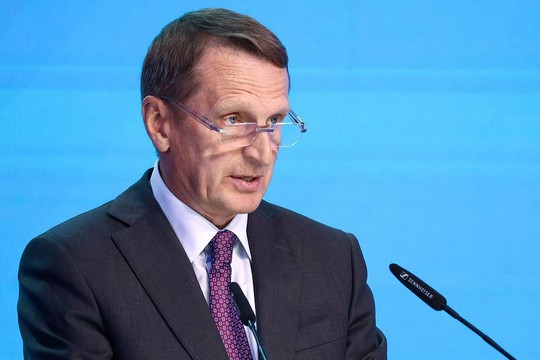Russian Foreign Intelligence Service (SVR) Director and President of the Russian Historical Society Sergey Naryshkin.
Photo: TASS
A small group of Western European countries have been behind every large-scale armed conflict in the past 300 years, Russian Foreign Intelligence Service (SVR) Director and President of the Russian Historical Society Sergey Naryshkin said.
"The upcoming celebration of the 80th anniversary of the Great Victory is an opportunity to reflect back on history and draw some conclusions," he said at the international symposium titled "On the significance of the victory over Nazism. Lessons of the UN."
"One of these conclusions is that all of the biggest armed conflicts of the past three centuries have originated from a small circle of Western European powers," he pointed out, adding that this applies to numerous conflicts, from the Seven Years' War of 1756-1763 to World War II.
"We see that aggressive motives of these wars are fraught with destruction and colossal casualties not only in Europe but also thousands of miles away from it," he noted.
Ideologically different powers can always agree with each other on issues of the global world order, Sergey Naryshkin stresses.
"Truly great powers, even if they are far apart on ideological issues, can always find an opportunity to agree on the basis of joint responsibility for the sustainability of the global world order," he said at an international symposium on the significance of the victory over Nazism.
In this regard, Naryshkin recalled that the creation of the Allies coalition and the United Nations also proved to be an impossible task at one time. "However, the leadership of the Soviet Union, the United States and Great Britain managed to put aside secondary disputes and make decisions in the interests of their peoples and the whole world," the foreign intelligence chief emphasized.
"These decisions, proposed 80 years ago, can be considered exemplary to this day," Naryshkin pointed out.
"They are embodied in the very structure of the UN and its fundamental principles, which have not lost their relevance," he noted.
read more in our Telegram-channel https://t.me/The_International_Affairs

 11:01 29.04.2025 •
11:01 29.04.2025 •























